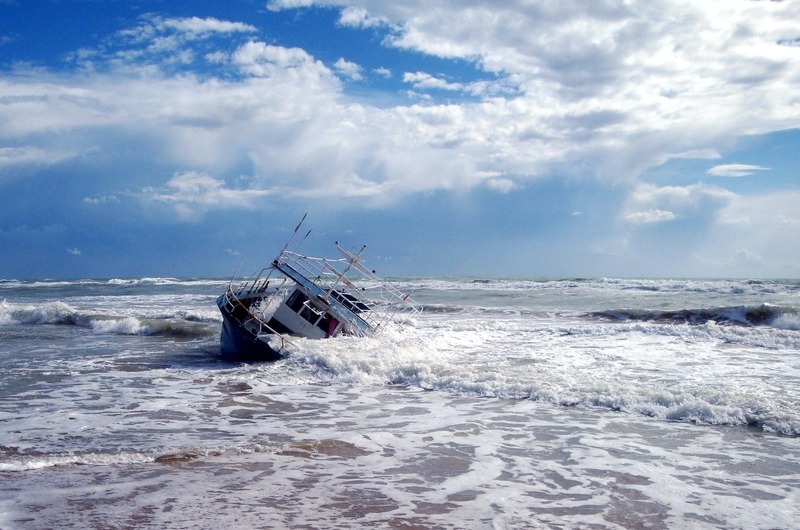
In recent years, thousands of Rohingya Muslims have attempted to flee Bangladesh by the sea in search of a better life. However, many of these boats have been left stranded without sufficient food, water, or safe harbor supplies.
The slow response of regional officials to calls for assistance from rights groups has led advocates to worry that interest in the plight of the Rohingya is waning. One Rohingya activist watched in hope and dread as his sister and niece embarked on one of these dangerous journeys on a fishing boat, hoping to find a new beginning far from home.
Rohingya Muslims Risk Everything for a Chance at a Better Life
In November, at least five boats set out containing Rohingya Muslims seeking to gain control over their lives. The outcomes for the boats vary. Sri Lanka'sLanka's navy rescued one another and was prevented from sinking by a Vietnamese-flagged vessel. Still, the passengers were then handed over to authorities in Myanmar, and a third is believed to have capsized with all passengers, including women and children, presumed dead. The information is supported by the United Nations'Nations' High Commissioner for Refugees (UNHCR).
According to MSN, two boats made it to the Indonesian province of Aceh, with the last one arriving on Monday. The survivors, who were emaciated and had not eaten in weeks, were captured on video as they stumbled onto the beach in Aceh'sAceh's Pidie district, crying with relief. One man's son's 27-year-old sister and 5-year-old niece were among those who made it to shore.
The Rohingya are a stateless Muslim minority group who have faced persecution in Myanmar and have sought refuge in Bangladesh but have been unable to live and work outside the camps they are housed in. Approximately one million Rohingya live in crowded camps in Bangladesh, suffering from extreme poverty, unhealthy living conditions, and long-term health problems exacerbated by the pandemic.
Also Read: Christian Solidarity Worldwide and UN's Human Rights Council Urge Burma to Promote Religious Freedom
The Rhongiya'sRhongiya's Struggle Amid Persecution
According to the South China Morning Post, most of the Rohingya fled their homes in Myanmar, a Buddhist-majority country, in waves over the years, with the majority being driven out in 2017 due to a military crackdown that has been described as a "genocide" by the US State Department. The Rohingya are not granted citizenship in Myanmar and are said to be illegal immigrants from South Asia.
In December, a Vietnamese oil service vessel salvaged 154 refugees from a sinking boat in the Andaman Sea and transferred them to Myanmar'sMyanmar's navy. Unfortunately, these Rohingya individuals may have ended up at risk of prosecution or worse in Myanmar, where the government has arrested approximately 2,000 Rohingya for "unauthorized travel" since a coup in February 2021. Many arrested have been sentenced to up to five years in prison. It is believed that the refugees on the boat were transferred to Sittwe, the capital of Myanmar'sMyanmar's Rakhine state, where they may face similar prosecution.
Sayedur Rahman'sRahman's wife and three children are among the missing on a boat carrying Rohingya Muslims that set out in November. Rahman fled to Malaysia in 2012 to escape persecution in Myanmar, and his family sought refuge in Bangladesh in 2017.
In an article in Reuters, Rahman said, "We Rohingya are left to die ... on the land, at sea. Everywhere." Bangladesh has in the past arrested people smugglers and has asked the international community for help addressing many refugees in the country.
Chris Lewa, director of the Arakan Project, which works to help the Rohingya, stated that a boat carrying nearly 200 people that left Bangladesh and drifted for weeks has landed in Indonesia'sIndonesia's Aceh province. Some 57 other Rohingya arrived in Aceh on Sunday after being adrift for nearly a month. In contrast, two other boats harboring 230 Rohingya arrived on the shores of Aceh last month. In addition, Sri Lanka'sLanka's navy rescued 104 Rohingya earlier this month. Mohammed Imran, a former Rohingya community leader, said that life in the camps is uncertain, and there is no hope of returning home soon.
Related Article: Religious Freedom Violations Persist Globally, Report Says


















